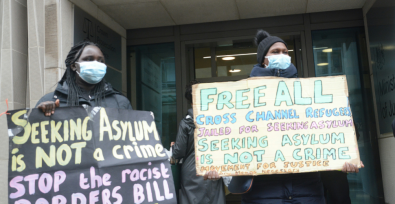The highest number of labor trafficking cases — nearly a quarter — reported to the US National Human Trafficking Hotline involved domestic workers. That’s some 1,211 individual cases.
And Filipinos were the number one group of domestic workers who were trafficked by their employers. Mexico, the United States, India, and Colombia rounded out the top 5 home countries of trafficked domestic workers in the US.
According to a new report, Human Trafficking at Home, jointly published by the National Domestic Workers Alliance and Polaris, many domestic workers face “widespread vulnerabilities and rampant exploitation.”
It also highlighted the challenges of protecting migrant workers and ensuring they can still send back remittances.
“Many countries export labour to boost their national economy with the repatriation of funds to the home country from their nationals employed abroad,” the report said.
“Although these countries should have a vested interest in protecting their citizens against human trafficking, they may be conflicted about what their priority should be – ensuring that their citizens have money to send back home regardless of the conditions under which they work, or making sure that their citizens are working with credible employers only, even if this means a reduction in income.”
South China Morning Post reports:
The numbers available only portray a fraction of the problem, as many victims are too afraid or have no means to come forward.
Most employer-traffickers control domestic workers by withholding their earnings, misrepresenting the job, making them work excessive hours and subjecting them to emotional abuse.
“The fact that domestic workers make up the greatest percentage of labour trafficking cases recorded by the national hotline can be attributed in part to this workforce’s near total lack of interim legal options – ways to get justice, get back pay or otherwise get help before a situation becomes intolerable or escalates into trafficking,” the report said.
Apart from the lack of protections under US law, the report said “the system by which many domestic workers from foreign countries enter the United States is so poorly designed that it could arguably be said to encourage exploitation and trafficking”.
There have been some modest improvements in recent years. The US Department of State introduced new protections for domestic workers of foreign diplomats and international organizations, including better health coverage and tougher consequences for abusive employers.
The World Bank has also introduced a new policy that requires staff to process their domestic workers’ salary through a designated third-party company, to ensure there is a record of wages paid.
Now advocates are setting their sights on passing a newly introduced National Domestic Workers Bill of Rights and pushing for an overhaul of the temporary work visa system in the US.






Freedom United is interested in hearing from our community and welcomes relevant, informed comments, advice, and insights that advance the conversation around our campaigns and advocacy. We value inclusivity and respect within our community. To be approved, your comments should be civil.
Agencies do worse than that. For example in the UAE they keep workers’ passport despite it’s against the law of that country.
Employers worldwide are prone to exploitation of their work force and it’s only workers that can oppose to their oppression. I just can’t help to notice that OFWs are simply not combactive enough to demand for their rights to be guaranteed. What a difference with European workers and their Unions!
The problem was the Filipino workers had no choice. Recruitment agencies expected workers to pay the fees thus creating the debt bondage. Deliberate exploitation on the part of the agencies.
The problem is that Filipino workers accept this exploitation.